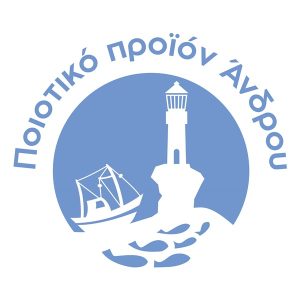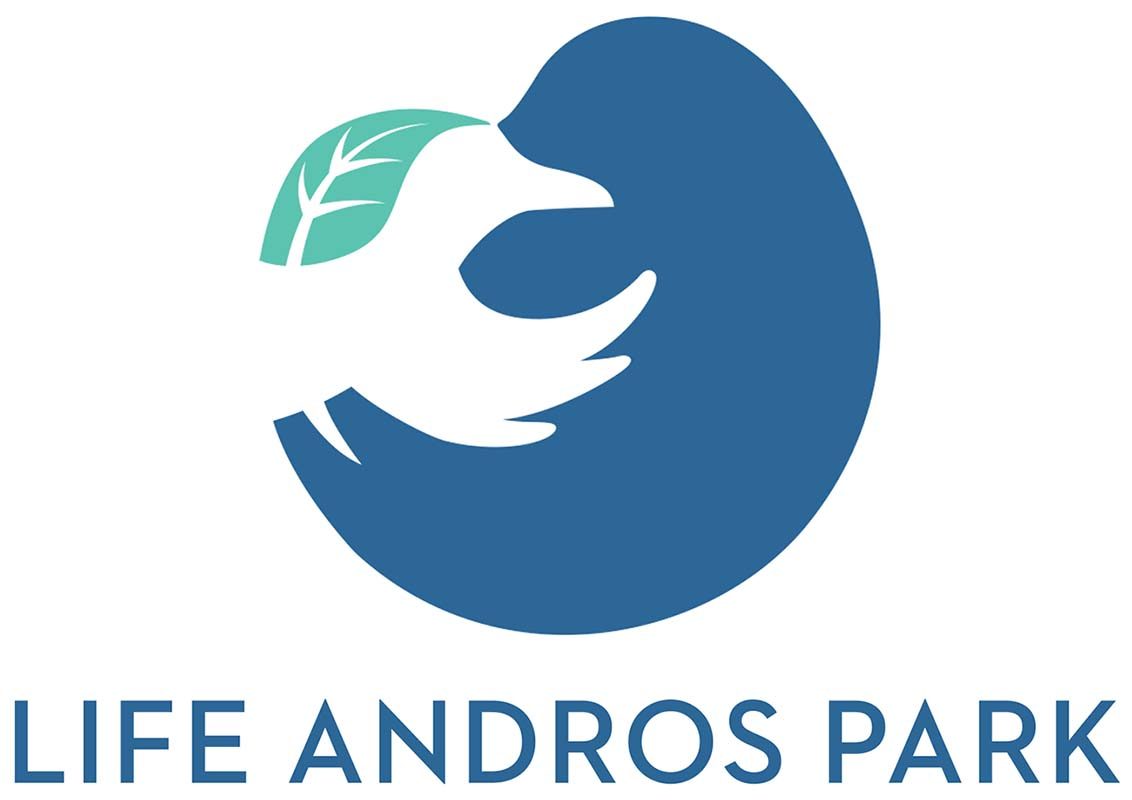Support businesses with the “Andros Brand” quality label
The “Andros Brand” Quality Label Certification acts as a symbol for the catches of Andros in order to protect marine life, support local coastal fishermen and preserve the local fishing heritage.
The label can be obtained by coastal professional fishermen, businesses active in fishing tourism, catering businesses, as well as hotels and tourist accommodations offering corresponding services.
The main objective is to create added value to fishery products and provide an opportunity for professional fishermen to diversify their income, ultimately reducing the environmental pressure on marine wildlife.
The certification participants:
- accept and diligently apply the applicable legislation, in cooperation with the competent bodies,
- apply good practices that contribute directly and indirectly to the conservation and protection of marine wildlife (including the Mediterranean Monk seal),
- distribute fresh catches that have been caught in the wider Cyclades region by coastal fishermen based on Andros, during each season and according to the spatial and temporal limitations of the region,
- fishermen participate in the collection of marine litter for recycling, and record the observed marine mammals, seabirds and alien species and inform the “Andros Brand” Management Committee accordingly.
Look for the quality label:

Respect the island and its nature
Reduce as much as possible the waste you create. Waste management on the islands is difficult, let alone the extra waste produced each year by visitors.
- Avoid buying single-use plastics. Glasses/straws etc. serve for a short period of time and have a life time of hundreds of years. In addition, this waste can end up in the sea and affect marine wildlife that may ingest or become entangled.
- Have canvas bags and use them for our shopping.
- Avoid buying bottled water. Ask if the residents of the settlement you are staining drink tap water.
- Have reusable tumblers/bottles with us.
- Andros is famous for its natural springs. Ask what the nearest source is and fill your water bottles/bottles there daily.
- Follow the island’s recycling system. Ask to learn about recycling on the island and the nearest collection point.
- Use water wisely. Although Andros is famous for its richness in water, during years of low rainfall, water shortage problems arise in areas of the island. Ask to not change your towels and sheets on a regular basis.
- Choose hotels or rooms for rent that follow environmentally friendly practices.
Support the local community
- Prefer local products that are available in grocery stores and supermarkets. Ask about local cheeses and other products.
- Choose restaurants that mainly use local products in their cuisine.
- Select restaurants and hotels that remain open all year round.
- Go fishing with a local fisherman.
Respect the nature, wildlife and plants of Andros Island
During every excursion, respect the natural world and your fellow human beings.
- Stay on the streets and paths.
- Avoid entering properties, especially during the ripening of the fruit.
- If you need to open a gate leave it exactly as you found it.
- Do not cut plants or wildflowers. Do not remove and destroy mushrooms.
- Avoid disturbance of bird nests and move away quickly if you are near one.
- If you have pets, it is better not to take them with you. Alternatively keep them close to you.
- Speak softly.
- Do not light fires or throw away lit cigarettes. There is a high risk of fire.
- Leave only your footprints and take only memories and photos.
In case you find an injured wild animal, contact the LIFE Information Center, which operates a wildlife first aid station at Korthi.
In any excursion with boat
- Seabirds and Eleonora’s falcons nest on the islets of Andros. Do not disembark on the islets.
- As a precaution avoid entering marine caves, as these may be used by seals.
- In case you meet a seal, do not approach it. The disturbance interferes with their ability to feed, breed, nurse, rest or socialize.
- Do not direct the boat towards the seal, maintain a distance of at least 50 meters and put the engine at idle. Do not chase or surround the animal.
In case you encounter a Mediterranean Monk Seal
In any case, be careful not to frighten the seal, as loud voices and sudden movements can stress the animal and it may react unpredictably, injuring itself or you.
In marine cave: Do not enter the marine cave, move slowly away, by swimming close to the walls of the cave so as to avoid blocking its exit and make the seal feel trapped.
In the water: Do not make sudden movements, do not try to approach the seal. Monk seals are docile animals but might become aggressive, like any other wild animal, if they feel threatened. Adhere to the safety distances.
On land: Monk seals come often on land to rest, especially during their moulting period. However, in some cases, an animal might still require assistance.
